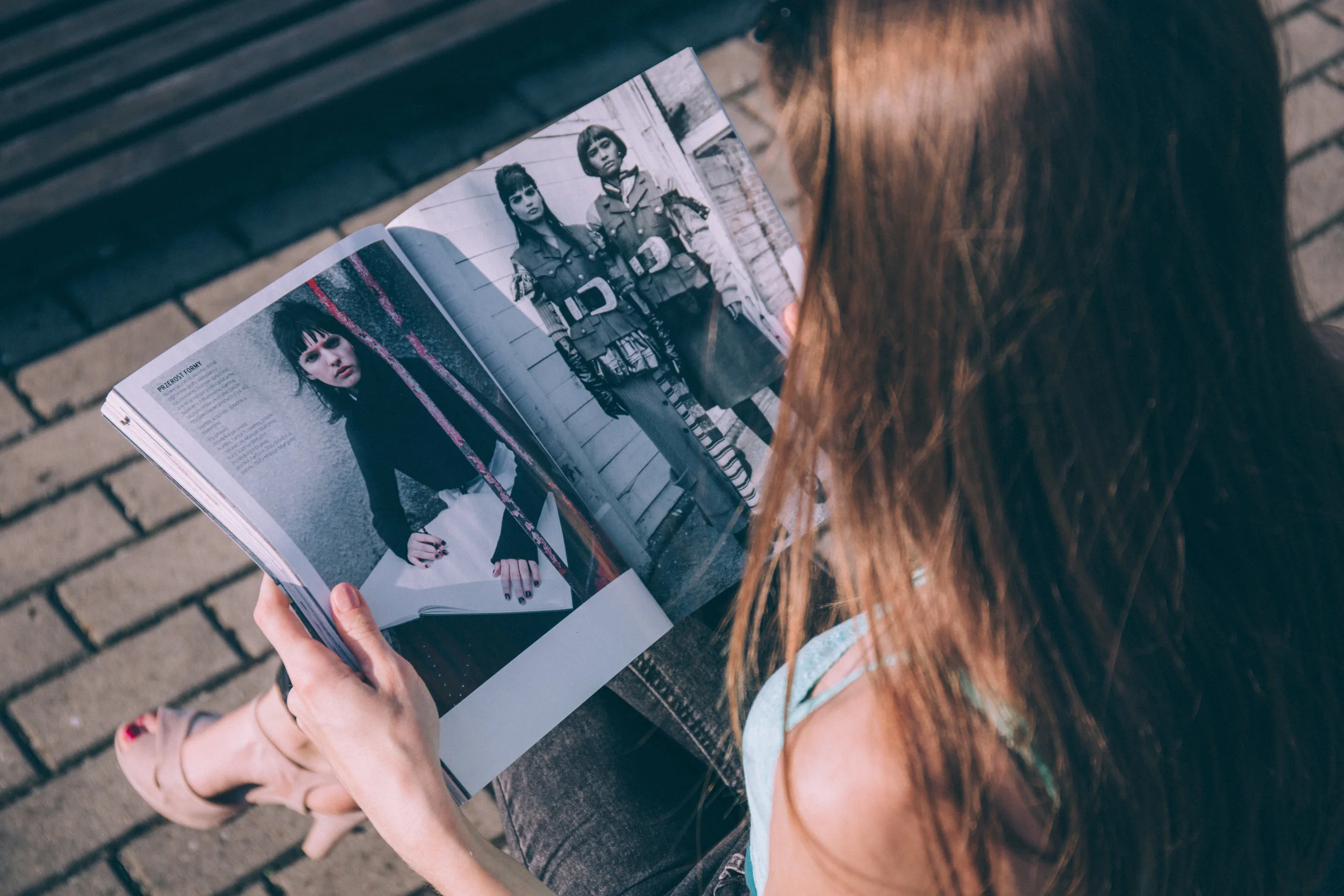The Virginity Delusion
The ideal woman is a contradiction: she is sexy, yet pure. Sexually willing, yet sexually exclusive. She is slutty, yet classy. Confident, yet submissive. Virginal, yet experienced. While these standards are impossible to uphold, they are instilled in young girls as soon as they can understand them.
In the United States and across the globe, society and media are infected with contradictory images of women. Girls are incessantly told that their worth lies in sexual potential. As soon as a girl gets her period, she is told that her "virginity" is sacred. A woman must keep her virginity as long as possible because no man wants a girl who has been "used." Ironically, girls are also told that they need to be sexual temptresses. They need to be willing if they want a guy to like them. How is this possible in a world obsessed with purity? How can women escape something so widely recognized like the concept of "virginity"?
First, we must understand what virginity is and where it comes from. The Oxford English Dictionary provides a significantly specific definition: "The condition of being or remaining in a state of chastity; abstinence from or avoidance of all sexual relations; bodily chastity, as a virtue of great commendation, or as conferring especial merit or sanctity; the mode of life characterized by this, esp. as adopted from religious motives." Reading this, it sounds like virginity is some archaic concept from Before the Common Era (BCE) or the Middle Ages. It sounds out of place in modern society, and frankly, that's because it is.
Notice how virginity is referred to as a "condition" or a "state" rather than something physical or tangible in any way. Virginity is a social construct. It has been created to determine a woman's worth. That's where it becomes "a virtue of great commendation, or as conferring especial merit or sanctity." Even though virginity is a concept, we still discuss it like it is an object, regardless of the dictionary’s definition. We can “lose” our virginity, give it away, or keep it. It is a commodified concept.
In order to dismantle this harmful construct, we must understand why it originally came to be. It really is not a stretch to call virginity a commodity, especially when it was, and still is, literally bought and sold today, as can been seen in the case of dowries. In this way, virginity is made tangible, and women are objectified. Now, a woman has monetary value based on her purity and it becomes easier for men to determine which women are worthy of marriage. Today, that translates into "slut-shaming" and encourages boys to assign worth to girls based on their purity, thus objectifying them. This practice implies that a woman's virginity equals her morality, and defines who she is, not as a person, but as a commodity.
In The Purity Myth by Jessica Valenti, Valenti explains the connection succinctly, saying, "Idolizing virginity as a stand-in for women's morality means that nothing else matters—not what we accomplish, not what we think, not what we care about and work for. Just if/how/whom we have sex with. That's all." A woman does not own her virginity. This is reinforced through practices such as "purity balls" and young girls vowing their virginities to their fathers. While this is a religious practice, this concept of virginity has become commonplace in any discussion of sex or sensuality. It has made its way into classrooms through abstinence education, which primarily shames women for even having the potential to "lose" their virginities.
Valenti also explains "Virginity Vouchers," which is as horrible as it sounds (as if purity rings were not enough!). While these are supposedly for young women and men, I do not see any mother-son purity balls or boys pledging their virginities to their mothers. This is because men own their sexuality. They are in control, and get to choose to have sex with a woman by their own accord. This is manifested in the "giving away" ritual performed at most weddings. Before a woman is married, her father is the one who possesses her sexuality; once she gets married, the bride’s father transfers this sexual possession to her husband. This virginity construct is so deeply rooted in our culture that no one bats an eye at practices like the "giving away" of a woman. A woman is a person. Like I have mentioned previously, a woman's virginity is traded like a commodity, further promoting the idea of women as objects, their sole purpose as being of service to men.
This idea not only affects our classrooms, but also our legislature. Think of abortion laws, restricted access to contraceptives, "legitimate rape," marital rape, personhood bills…the list goes on. The idea is that if a woman were moral (i.e. were a virgin), she would not need contraception or abortion. Also, if a woman were to be sexually “immoral”, she needs to punished and shamed. Politicians, too, need to be careful in the way they are defining "legitimate rape," indicating that any other sort of rape is not only okay, but is the fault of the victim. Thus, virginity seeks to promote the longstanding notion that women are not people. We are merely objects ready to be bought and sold.
Yet, women are fighting back. The feminist movement is alive and expanding; women are reclaiming their bodies, organizing action, revolting against our inherently sexist society, and taking the lead in the fight for gender equity. We do not have to accept virginity, as it is a social construct. It is not physical or biological—it truly does not exist.
There are several steps we can take to combat the delusion of virginity. Since it is something perpetuated by the media, we need to create our own ideas. While we have done an excellent job so far (as manifested in this article and Her Culture all together), there is always space for more. Get writing, get posting, and get sharing! Social media is very powerful. We have the power to build our own culture where the delusion of virginity is a thing of the past.
We must educate ourselves in order to educate others. Refrain from discussing virginity, even though it may be hard at first (and that's okay). Do not judge other women for talking about it since it is such a commonplace ideal. The movement begins with talking to each other and getting organized. There are large organizations like NOW, NARAL, and Planned Parenthood garnering support for reproductive rights. The government must know that we are powerful and willing to fight. Keep yourself informed and up-to-date on legislative action, as we have the power and potential to change it in our favor!
While following those large organizations is a great place to start, we should all be paying attention to local actions, as well. There are grassroots movements where individuals can bring about real change. Read up on your state's reproductive legislation and you'll likely find some local group to work with on the way. You are certainly not alone in your thinking; rather, you just have to go out and find your own community of activists, or even start your own! We are going to need as many people as possible if we ever want full gender equality, and we have to be willing to fight for it. It is going to be a long, arduous war, but we will be victorious. The time to come together and claim the equality women so rightfully deserve is now.
Nikki Camera is currently a freshman in the Liberal Studies Program at New York University. She plans to major in English and minor in creative writing. Along with writing, she is a passionate activist and considers herself a revolutionary. She is a member of the International Socialist Organization, which works to combat issues like racism, sexism, inequality, climate change, and more. She has always been a proud feminist. She has volunteered for Planned Parenthood, Breakthrough Collaborative, the SPCA, various environmental organizations, and more. She is currently volunteering for Peer Health Exchange. She is a dog lover and has an adorable Yorkie named Sparky at her home in Connecticut.
You may also like:



